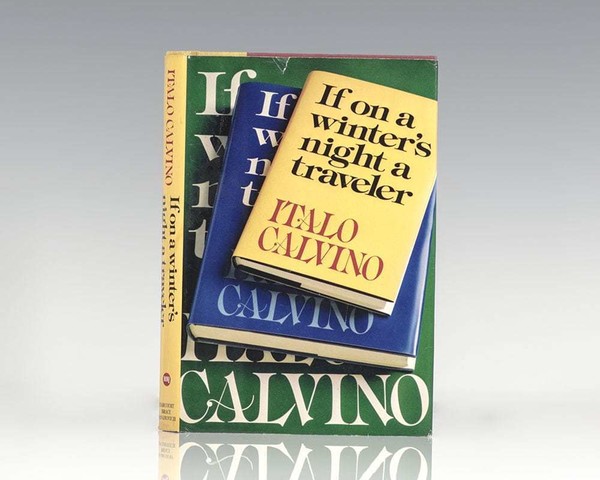The protagonist is you. You, dear Reader. The one holding a book titled If On a Winter’s Night a Traveller. The book isn’t actually If On a Winter’s Night a Traveller, by the way, but that’s a spoiler. You’re about to meet the love of your life, you will endure some awkward moments trying to impress her, and maybe you will uncover an international publishing fraud or two.

Above is the premise of the book, through which author Italo Calvino’s experimental writing style was propelled into international limelight. Each chapter is divided into two parts: one concerning the Reader, the other being the first chapter of a new book the Reader reads. Although the primary narrative concerning the Reader is more or less coherently strung together, the many books introduced within the book are anachronistic and confusing. Because of the many settings-within-settings, one moment you are reading a World War-esque political thriller, the next you are reading a documentary of the fictional country of Cimbria. Not helping the conclusion is the fact that the Reader can rarely read any book to completion. Part of the difficulty I had in parsing the information in the book was because I constantly tried to find connections between chapters where there were none. In a sense, I wasn’t supposed to do that; I was just supposed to read. The book, being very medium aware, tells me constantly to do so. (It also constantly insults me. This book knows it's a book and I’m a reader. Hilarity ensues.)
Written in 1979, merely three decades after World War II, If On a Winter’s Night a Traveller is strongly influenced by the postmodernist movement. The movement occurred shortly after the end of the war. To a lot of the soldiers who have returned home, the meaning has dropped out of everything — forever. They and the general public could no longer identify with the wartime media that portrayed the soldiers as heroes fighting against some sort of eternal evil. Thus, postmodernism was born, characterized by its abject apathy and by its portrayal of its main characters, especially soldiers, as normal people who passively bounce between wrong places and wrong times. Rarely does postmodernism end on a high note. It is also characterized by a liberal use of time-traveling and achronological narratives — perhaps because of the prevalent feeling of living in between wartime and the present during this time period.
Traveller features almost all of the staples of postmodern literature: fragmented narratives, metafictions, and self-awareness. Like other postmodern books at the time, such as James Joyce’s notorious Finnegan’s Wake or Kurt Vonnegut’s Slaughterhouse Five, Traveller’s writing style essentially assumes that its readers are geniuses. Never are there any explanations given about unfamiliar concepts, which often turn out to be crucial to understanding what is going on. Regardless of its obfusticating writing style, If On a Winter’s Night a Traveller is one of Calvino’s most well-read books, and by the end of his life, Calvino was one of the most translated Italian writers in history.
Italo Calvino’s overarching message is clear: the art of reading is slowly dying. It is being replaced with the art of literature analysis, of reducing books down into their political subtext and ignoring everything else. Calvino criticizes the pretentious readers who “know exactly what the book’s about without ever reading it” and the self-righteous critics who “rigidly adhere to and promote their chosen dogma”. Reading should be a way to challenge one’s worldview — but more importantly, the purpose of reading should be to read.
The book is very confusing and requires significant effort from the reader to read, but then again, confusion is a staple of postmodernism. Its meta-awareness and tendency to break the fourth wall will also appeal to readers. In conclusion, the book is great. Give it a read. Be warned though: the book will throw you tidbits of history and foreshadow that will never be used again, much to your frustration.
And it will laugh at you for it.

